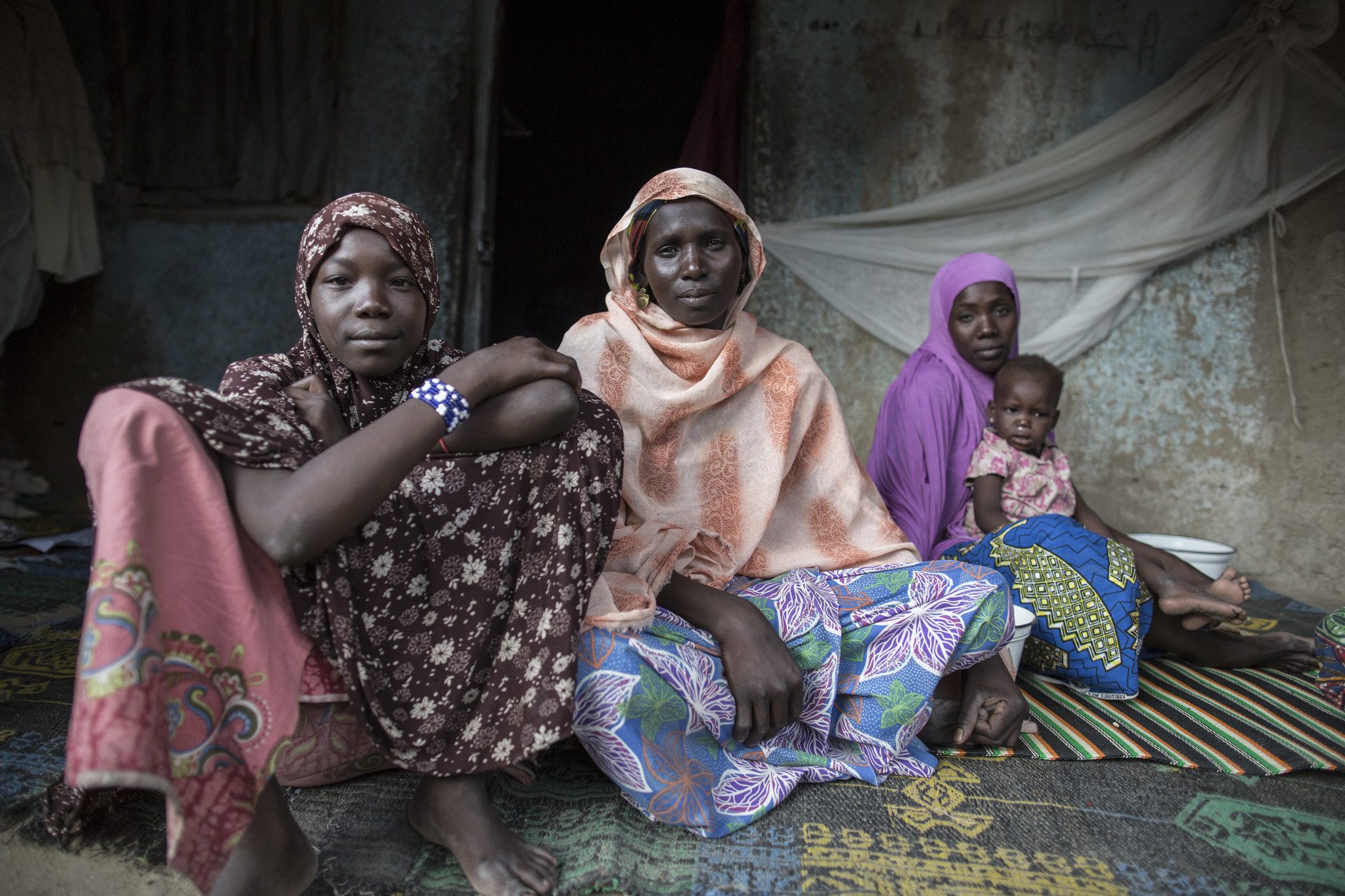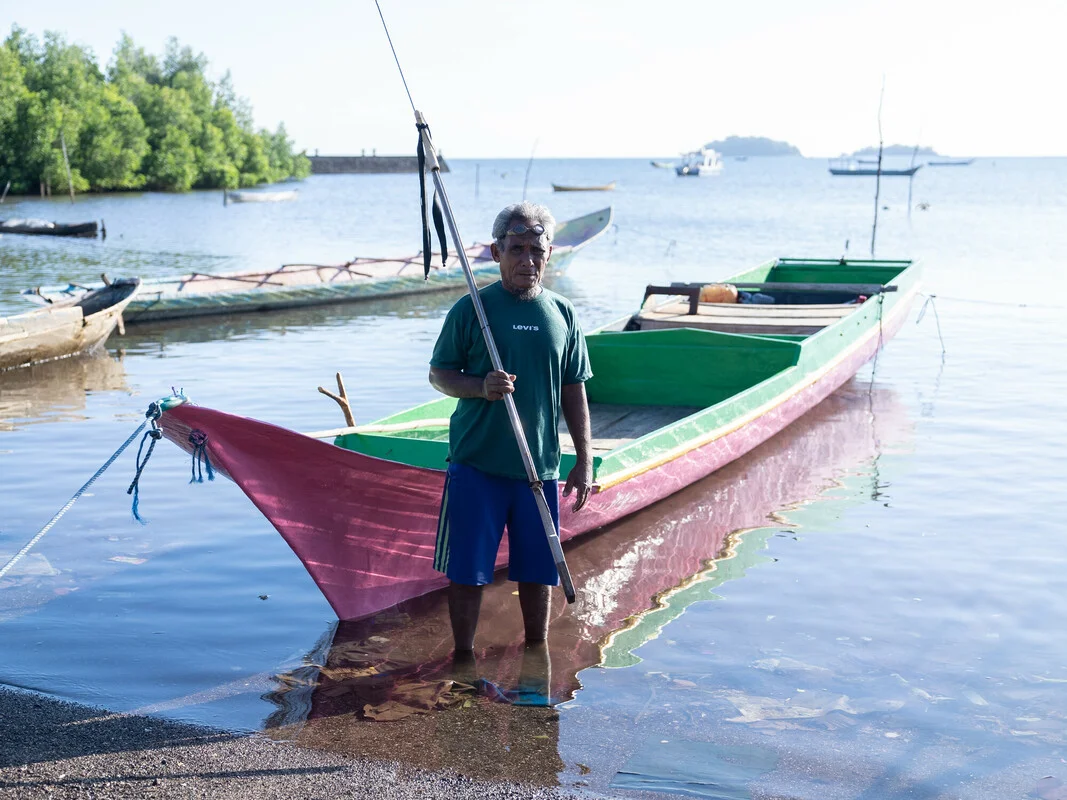A desperate and largely unknown humanitarian crisis is deteriorating in the Lake Chad Basin region of West Africa, due to a violent seven-year conflict with the group commonly known as Boko Haram and the military operations to counter them.
Originating in Nigeria, the violence has spread across borders into neighboring Niger, Chad and Cameroon forcing over 2.6 million people to flee their homes, abandon their farms and land, and leaving over nine million people in immediate need of humanitarian assistance.
This is Africa’s fastest growing displacement crisis, with alarming levels of food insecurity and malnutrition and yet the people at the centre of it remain largely unseen and unassisted by the world. Over 1.9 million of them are Nigerians displaced in their country’s north-east – the seventh largest internally displaced population in the world.
Most of the displaced families are sheltered by some of the poorest and most vulnerable communities. This story aims to give them a voice.
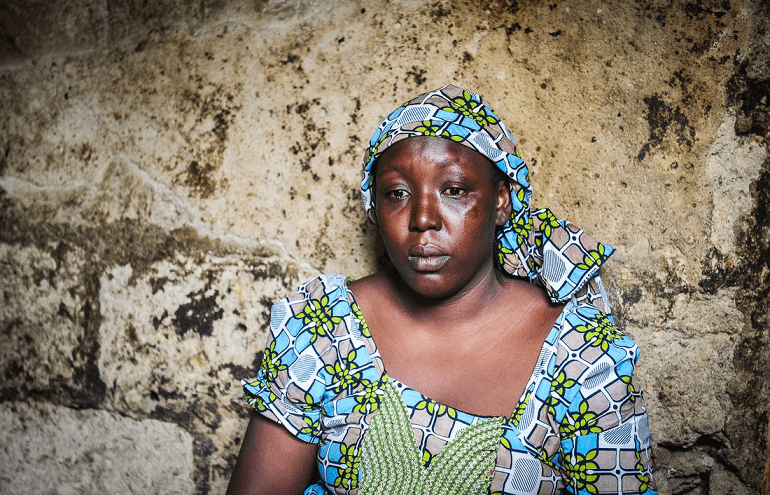
“Begging is necessary to keep body and soul”
Fatima, 35 years old, IDP living in Kabbar Maila host community, Maiduguri, north-east Nigeria
Fatima came to Maiduguri three years ago. Her husband used to be a market trader. He used to buy food from the local farmers and sell it in Bama. She vividly remembers the day things went horribly wrong. Boko Haram forced their way in to her home and cut her husband’s throat in front of her. When they set her house on fire she grabbed her children and ran into the forest. After one week in the forest, she eventually made it to Maiduguri and made contact with someone from her community.
She lives now in a small one room concrete building among Kabbar Maila IDP’s (internally displaced people) host community and pays 1,500 lira rent each month. To earn money she pounds corn for a private business. She is given the residue of the corn for free and sells it as animal feed to earn some extra money. But even with this extra income she doesn’t have enough money to survive. Her children have not been in school for the past two years and she can’t afford to pay her rent. She is forced to send her boys out to beg. “Begging is a necessity to keep body and soul”. There is no other way to survive, she says.
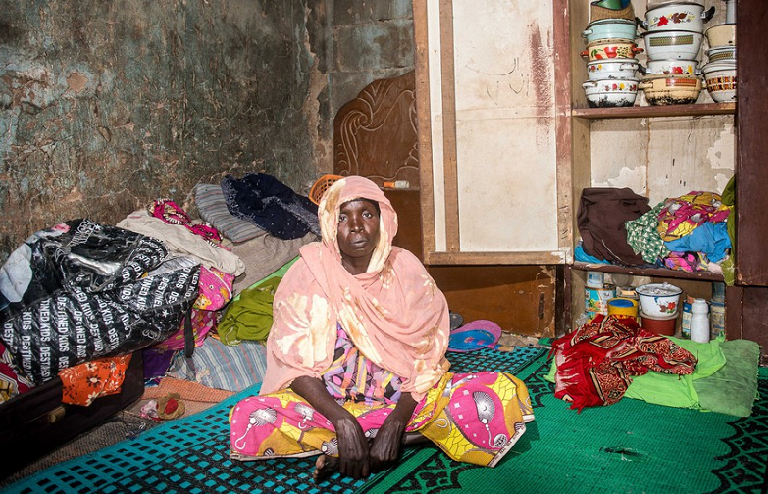
Fleeing violence and burned down villages
Zarah, 50 years old, IDP living in Kabbar Maila host community, in Maiduguri
Zarah’s husband was a farmer and they grew their own food on their plot of land. The family used to own their home. She fled in fear three years ago with her six children and spent one month in the forest after Boko Haram attacked her village and killed her husband. To survive they relied on leftovers from communities they passed along the way, as well as scavenging for food that had been thrown away. She now lives in Kabbar Maila host community, Maiduguri, with her children in a crowded room with a leaking roof.
She does not work as people do not want to give jobs to someone her age. She has not been able to pay rent for three months now and the landlord is pressuring her to pay. To feed her family, her eldest daughter buys sachets of water from a vendor and hawks them on the streets. If she’s unable to make money, Zarah sends her and some of her other children to beg. The local host community have been very welcoming and share the little they have but they are poor too.
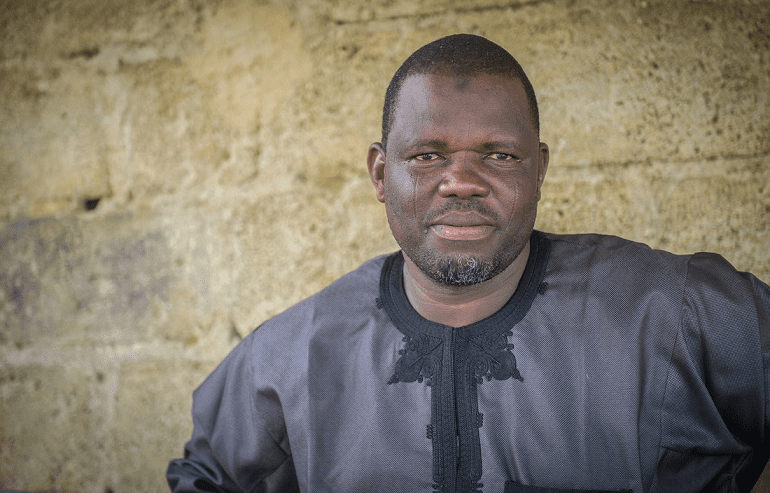
“Displaced people are brothers”
Ahmed, 47 years old, is the “Bulama” (leader) of the Kushari IDP host community, in Maiduguri
Ahmed leads the Kushari host community in Maiduguri. He has welcomed up to 10,000 refugees from across the different local government areas in Borno state. Some of the IDPs were allocated land where they were able to build make shift shelters, others were given shelter in unfinished buildings for free. He feels there has been a positive impact in his area since the IDPs came. More attention has come to his community who, along with the IDPs, are now receiving assistance from humanitarian agencies and others.
There is a good relationship between the IDPs and the host community. Both are supporting each other but need help with jobs and livelihoods so that they can be self sufficient. They are working together on a business venture producing and selling charcoal. Ahmed facilitates the business by providing a truck to transport the charcoal and negotiating access to wood with the Forestry government department who he works for. He also helps the IDPs by providing them with ID cards which helps to facilitate their freedom of movement.
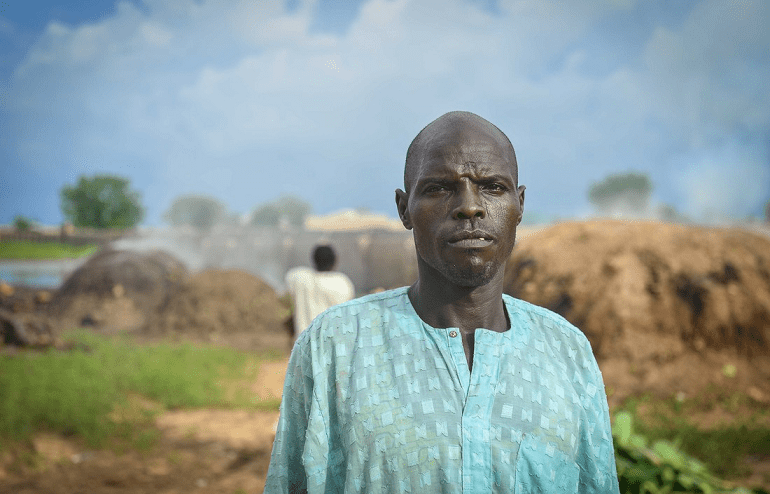
$4 for three days work
Shettima, over 50, IDP living in Kushari host community, in Maiduguri
Shettima came to Kushari three years ago with his wife and three children. He made his living as a farmer and was also involved in the charcoal business. His children used to go to school. He heard that Boko Haram was looking for him because he had sold his cow and they were after his money. Out of fear he and his family left home and trekked to Kuchari by foot. The community leader gave him some space on an open piece of land and he created his own shelter with iron sheets and wood.
Now he is doing daily labour work in the charcoal business being run by IDPs and the host community. For three days work he receives 1000 Naira which is just over AUD $4. He is also receiving some aid from humanitarian organisations. But this is not enough to sustain his family. He wants his children to have a future and is praying that the insurgency will be over soon so that he can go back to his village and rebuild his community.
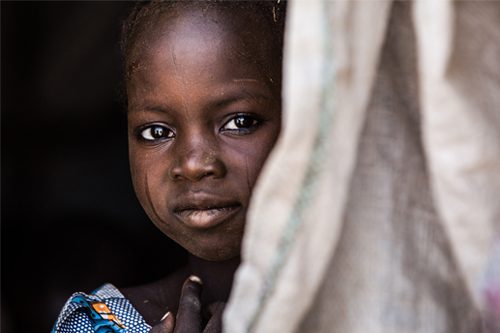
Africa Crisis Appeal
Please donate today to help families affected by this terrible crisis get access to the basic essentials — clean water, food, and shelter — so they can remain healthy and safe.
